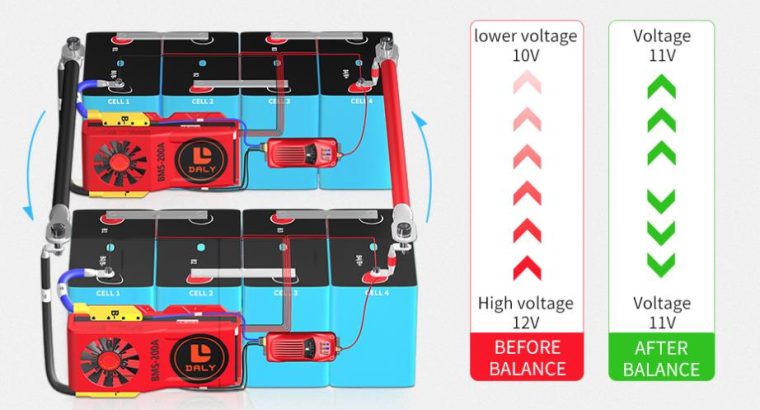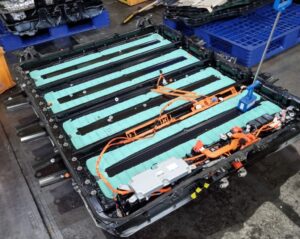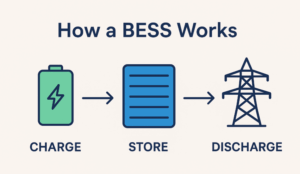Powering Efficiency and Safety: The Vital Role of Battery Management System in BESS

Battery Energy Storage Systems (BESS) are playing an increasingly important role in the electricity grid, allowing for the integration of renewable energy sources and providing backup power in case of outages. These systems consist of multiple battery cells that are connected together to form a battery pack. To ensure the safe and efficient operation of the BESS, a Battery Management System (BMS) is required.
What is Battery Management System?
The Battery Management System is a combination of hardware and software that communicates with the battery cells and the overall BESS control system. It monitors and controls various parameters of the batteries, including the state of charge, state of health, temperature, and voltage.
The BMS plays a critical role in the operation and performance of the BESS, as it is responsible for managing the operation of the battery cells and maximizing their lifespan.
The Battery Management System is to balance the charge and discharge
One of the key functions of the Battery Management System is to balance the charge and discharge of individual battery cells. The BMS monitors the voltage of each cell and ensures that they are all working together optimally. If some cells have a higher voltage than others, the BMS will direct the charge to the cells that are lower, preventing overcharging and extending the lifespan of the battery cells. Similarly, during discharge, the BMS will ensure that each cell is discharged evenly to prevent over-discharging, which can damage the cells.
The Battery Management System also provides important information to the system operator, such as the current and predicted state of charge of the battery, the amount of energy being stored or discharged, and any faults or alarms that may occur. This information is used to manage the operation of the BESS, including the scheduling of energy storage and discharge, to optimize the performance of the system and ensure reliable operation.
The Battery Management System is to ensure the safety
One of the primary functions of the Battery Management System is to ensure the safety of the BESS. Lithium-ion batteries, which are commonly used in BESS, can be dangerous if not managed properly. The Battery Management System monitors the temperature of the battery cells and will shut down the battery pack if it gets too hot. It also ensures that the battery cells do not exceed their maximum charge or discharge rates, which can cause them to overheat and potentially catch fire.
The Battery Management System is to extend the lifespan of the battery
Another important function of the Battery Management System is to extend the lifespan of the battery cells. Lithium-ion batteries degrade over time and with use, and the BMS can help to mitigate this. By balancing the charge and discharge of the battery cells, the BMS can prevent overcharging and over-discharging, which can cause the cells to degrade more quickly. The BMS can also monitor the state of health of the battery cells and provide information to the system operator about when cells need to be replaced or repaired.
In addition to its safety and performance functions, the Battery Management System can also provide valuable data to the system operator for energy management purposes. The BMS can provide real-time data on the amount of energy being stored or discharged, as well as the current state of charge of the battery. This information can be used to optimize the operation of the BESS and to integrate it into the wider electricity grid.
Overall, the Battery Management System is a critical component of a BESS, as it ensures the safe and efficient operation of the battery cells, helps to extend their lifespan and provides important information to the system operator for managing the overall operation of the energy storage system. The BMS is constantly evolving, with new software and hardware developments enabling even more sophisticated control and monitoring of battery cells. As BESS continues to play an increasingly important role in the electricity grid, the importance of the BMS will only continue to grow.






